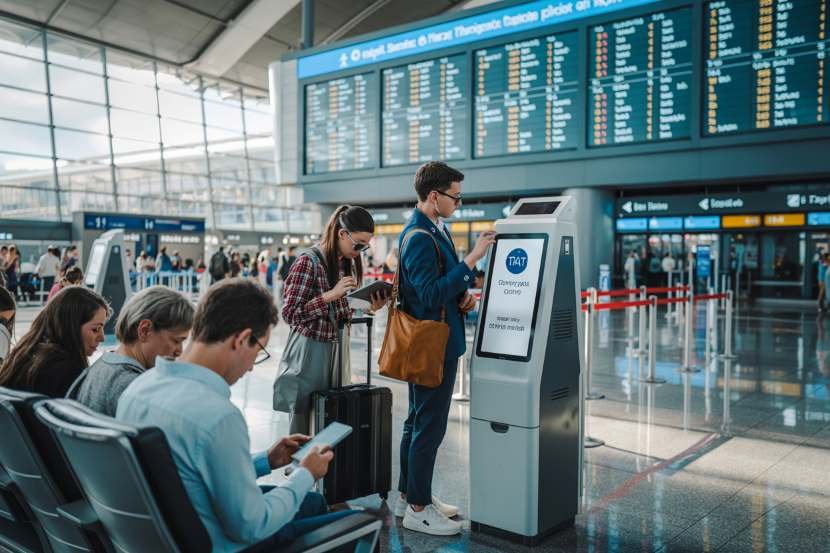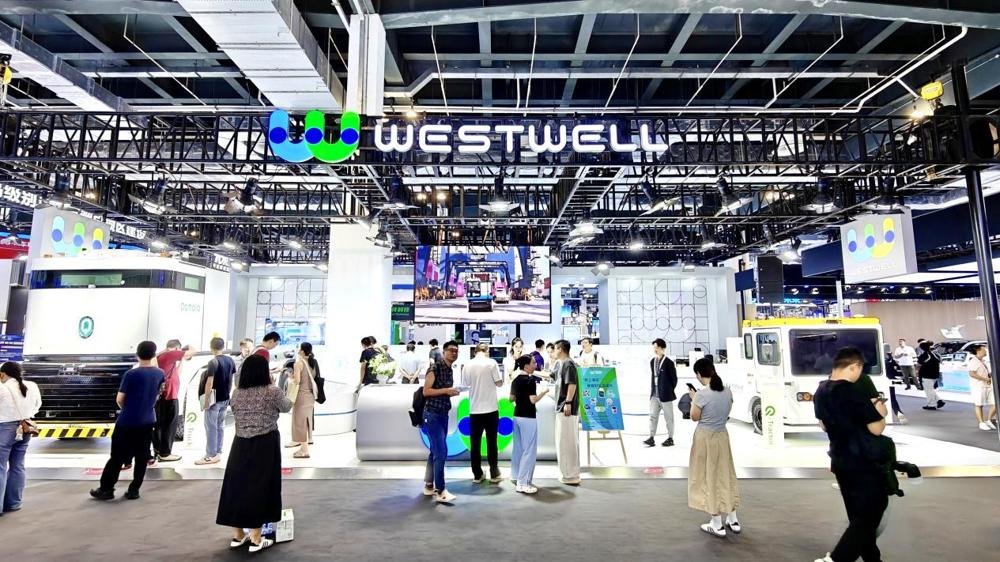Brand Stories
Travel Industry Breakthroughs With Artificial Intelligence Unleash Urgent Future Innovation As AI Transforms Global Tourism

Monday, July 28, 2025
Artificial Intelligence is not some future truth for travel, but a current reality requiring urgent change. The travel industry has been smashed wide shutter, with AI driving changes and innovation in the circulation and experience at hotels, airlines, and travel in general. From customized itineraries to the management of real-time disruptions, the change is profound, rapid and nonnegotiable.
And it’s not taking place in corporate boardrooms. It’s playing out in the hands of casual travelers. With tools like ChatGPT, Gemini and ElevenLabs, tourists are creating their own experiences and moving the travel industry forward as they go. The urgency is real. Immigration without creativity won’t cut it any more. For the world of travel, artificial intelligence isn’t just an upgrade — it’s a matter of survival.
Consumers Are the New Innovators in Travel Tech
For the first time in history, innovation in travel is being pushed by consumers instead of corporations. Travelers using generative AI are shaping experiences on the fly. They’re mapping itineraries using smart prompts, comparing hotel packages in seconds, translating foreign signs mid-journey, and discovering hidden gems without tour guides. Their expectations are evolving fast. Now the travel industry must reverse-engineer consumer innovation into scalable, reliable systems.
Airlines Enter the Age of Predictive Intelligence
Airlines are being reshaped by AI at every operational level. Dynamic ticket pricing, predictive maintenance systems, and real-time disruption alerts are becoming industry standards. AI-enhanced chatbots now respond faster than call centers. Intelligent baggage tracking systems reduce stress. Predictive weather modeling improves safety and efficiency. But the challenge lies in speed. By the time integration is complete, new AI models are already redefining benchmarks. Airlines must adopt a two-speed strategy—stable tech for operations and agile experimentation for innovation. Only those that stay on the edge will remain competitive.
Hotels Must Create Anticipatory Guest Experiences
In hospitality, AI isn’t just about efficiency—it’s about empathy. Hotels are using data to predict guest needs before they’re even expressed. AI-driven systems are learning guest preferences, automating room conditions, streamlining check-ins, and customizing dining experiences. Guests no longer want service—they want intuitive service. They want rooms that understand mood, dining that reflects energy levels, and environments that shift with schedules. The hotels that thrive will not be the most luxurious—they will be the most emotionally responsive.
Tour Operators Are Being Replaced by Algorithms
Tour operators have a harsh reality. Self-built, immersive travel experiences can now be created in minutes by travelers everywhere with generative AI tools. AI can recommend theme-oriented experiences, adjust for weather and suggest detours in real time. Today, rather than following the itinerary drawn up for them by some travel agency, travelers are looking for algorithm-driven escapades. For tour operators to thrive, they need to give up competing with AI and begin working alongside it. Hybrid models — human passion, A.I. precision — are the way of the future.
The Rapid Obsolescence Trap
The greatest threat is not innovation failure—it’s lag. The travel industry operates in cycles. But AI moves in sprints. By the time a system is tested and launched, it may already be outdated. This leads to a crucial pivot: companies must run dual-track teams. One focuses on integration. The other explores bleeding-edge technology with speed and risk tolerance. Without this balance, even the largest brands will fall behind.
Redefining the Purpose of Travel in an AI World
With AI handling logistics, travel must return to its emotional core. If every itinerary can be automated, what makes travel meaningful? The future lies in intentional, transformational experiences. AI should empower deeper human connections—not distract from them. The purpose of travel isn’t just movement. It’s memory, emotion, transformation. AI must serve that purpose, not replace it.
Airports Become Intelligent Hubs
Airports are now embedding AI in security screening, passenger flow, and language assistance. Real-time updates on delays, gate changes, and immigration processing are becoming norms. AI also enables accessibility—providing navigation for visually impaired travelers, translation services for global visitors, and faster crisis management in disruptions. Airports that leverage these features will create seamless, stress-free environments that retain loyalty.
Web 3.0 Will Evolve Around Travel Interfaces
The next iteration of the internet will be shaped by how travelers interact with AI. Intelligent personal travel profiles will adapt over time, feeding algorithms that predict and customize entire journeys. From check-in to check-out, from booking to boarding, these digital identities will create ultra-personalized travel flows—each one smarter than the last.
Immediate Action Required for Long-Term Survival
Travel industry leaders must act now. Waiting is no longer an option. AI is moving faster than the business cycle. Travel companies must set up innovation units, test prototypes rapidly, collaborate with startups, and monitor real-time consumer trends. Above all, they must listen—not just to shareholders—but to travelers. Because today, the traveler is the technologist.
Brand Stories
UFC Taps AI to Enhance Live MMA Streaming Events

Ultimate Fighting Championship (UFC), a mixed martial arts events company, is using artificial intelligence (AI) to bring every punch, kick and body slam into extreme focus for sports fans watching events live.
Brand Stories
Promising Artificial Intelligence Stocks To Keep An Eye On – July 26th – MarketBeat
Brand Stories
Logistics innovations showcased at Shanghai’s World Artificial Intelligence Conference

Enterprises in the logistics industry are showcasing latest advancements that push technological boundaries at the ongoing 2025 World Artificial Intelligence Conference (WAIC), which opened in Shanghai on Saturday.
Shanghai Westwell Technology, which specializes in intelligent solutions in the bulk logistics sector, is highlighting its upgraded Q-Tractor P40 Plus, which is making its global debut at the “Global Solidarity in the AI Era” themed event.
This driverless, new energy tractor targets scenarios involving air cargo, industrial parks and logistics centers, with an impressive 200km endurance and five-minute battery swap capability.
Addressing labor shortages and efficiency gaps, Westwell, which has more than 200 clients across 28 countries and regions, said it delivers not just autonomous vehicles but an integrated smart freight solution combining fleet management, energy solutions and safety systems to build “smart airports”.
Its Q-Tractor products have already been deployed at Hong Kong International Airport, Hong Kong Air Cargo Terminals and the cargo terminal of Sichuan Airlines at Chengdu Shuangliu International Airport.
Kuaidi 100, a one-stop service platform for global express logistics and cloud service provider of express logistics information within China, is exhibiting its technical accumulations and industrial practices at the event.
The enterprise launched an “AI in all and all in AI” strategy in 2023, aiming to drive continuous innovation for all products through AI. At its booth, the enterprise highlights its recent blockbuster releases, including a digital intelligence map for China’s express logistics network, which contribute to the improvement of basic capabilities regarding logistics digital intelligence in the country.
Shanghai-based robotics firm AgiBot broadcast its embodied intelligent robots performing logistics operations from the exhibition hall. The robots demonstrated that, with multimodal perception and real-time data feedback, they can realize whole-process automation of complex logistics tasks.
-

 Brand Stories1 week ago
Brand Stories1 week agoBloom Hotels: A Modern Vision of Hospitality Redefining Travel
-

 Brand Stories3 days ago
Brand Stories3 days agoCheQin.ai sets a new standard for hotel booking with its AI capabilities: empowering travellers to bargain, choose the best, and book with clarity.
-

 Destinations & Things To Do1 week ago
Destinations & Things To Do1 week agoUntouched Destinations: Stunning Hidden Gems You Must Visit
-

 AI in Travel1 week ago
AI in Travel1 week agoAI Travel Revolution: Must-Have Guide to the Best Experience
-

 Brand Stories3 weeks ago
Brand Stories3 weeks agoVoice AI Startup ElevenLabs Plans to Add Hubs Around the World
-

 Brand Stories2 weeks ago
Brand Stories2 weeks agoHow Elon Musk’s rogue Grok chatbot became a cautionary AI tale
-

 Destinations & Things To Do2 days ago
Destinations & Things To Do2 days agoThis Hidden Beach in India Glows at Night-But Only in One Secret Season
-

 Asia Travel Pulse3 weeks ago
Asia Travel Pulse3 weeks agoLooking For Adventure In Asia? Here Are 7 Epic Destinations You Need To Experience At Least Once – Zee News
-

 AI in Travel3 weeks ago
AI in Travel3 weeks ago‘Will AI take my job?’ A trip to a Beijing fortune-telling bar to see what lies ahead | China
-

 Brand Stories3 weeks ago
Brand Stories3 weeks agoChatGPT — the last of the great romantics















You must be logged in to post a comment Login